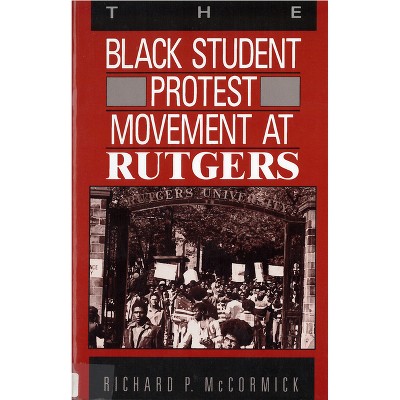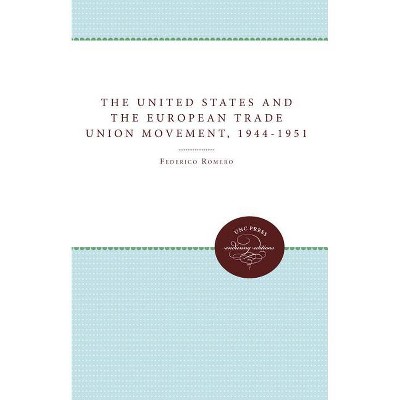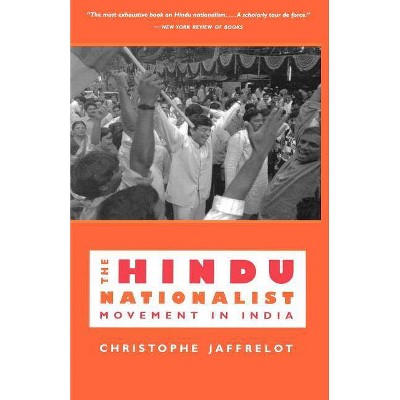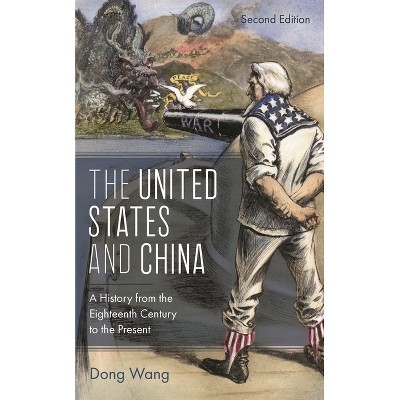United States and the Japanese Student Movement, 1948-1973 - by Naoko Koda (Hardcover)

About this item
Highlights
- The author argues that interactions between the movement and US Cold Warriors had a profound and lasting impact on Japanese society and Japan-US relations.
- About the Author: Naoko Koda is associate professor at Kindai University.
- 274 Pages
- History, Asia
Description
About the Book
The author argues that interactions between the movement and US Cold Warriors had a profound and lasting impact on Japanese society and Japan-US relations.Book Synopsis
The author argues that interactions between the movement and US Cold Warriors had a profound and lasting impact on Japanese society and Japan-US relations.Review Quotes
In the era following Japan's WW II defeat, activism among students there erupted earlier than generally acknowledged. Spurred by a major rethinking of American occupation policies after 1947, emerging young people's notions of Japan's future path came to be seen as differing significantly from the policy objectives the US articulated. Although the original occupation goals had been to inculcate a renewed commitment to 'democracy' in Japan and to provide a reinvigorated sense of national security, the new American objectives placed a greater emphasis on cementing Japan's role as a major Asian bulwark in the Pacific against the Cold War threats emanating from the Soviet Union and China. Koda weaves together a number of significant threads from the Japanese point of view. This expands current understandings of nongovernmental protests by Japan's leading national student organization, Zengakuren, against perceptions of imperialist overreach by the US and the consequences of these protests as they affected Japan's relations with the US and the larger world. The author's expanded interpretive canvas is well worth exploring. Recommended.
Koda's study remains extremely impressive and the magnitude of her achievement difficult to overstate. Having set herself an almost impossible task, she has by and large succeeded. The fact that Koda was able to extract such a coherent and comprehensive narrative from so complex a movement across such a vast time frame is a testament to her skills as both a writer and a researcher. Her narrative is rendered all the more compelling by her persuasive reference to an abundance of primary and archival materials, including many sources not previously mined by scholars in either English or Japanese. Above all, Koda has done an especially thorough job of conveying just how much the Japanese student movement mattered, to activists and policy makers alike, in the United States and around the world. A few notable lacunae notwithstanding, Koda's study will undoubtedly become an essential reference for anyone interested in Japan's vibrant, powerful, and globally relevant postwar student movement for many decades to come.
Naoko Koda has delivered a striking interpretation of post-1945 US-Japan relations by documenting the authority of Japanese student radicals connected to Zengakuren as a flashpoint in the global Cold War. This is a story of the student Left that contested Cold War liberalism that pivoted around the wrath of anti-Communism, militarization, and colonialism to expose the underlying imperialism of the US-Japan alliance. Zengakuren prefigured the global 1968 student revolt in powerful ways. I recommend this book to all those who are interested in rethinking the very notions of peace and democracy that still underwrite US-Japan security arrangements to maintain a massive military presence, especially in Okinawa. It demands a wide readership.
Too often Japan is still seen in the West as a land without politics and even more often as a land without a Left. Naoko Koda's book is a sound education in the error of this notion. Her lucidly written, multi-decade history of the Japanese student organization, Zengakuren, reminds us just how much the Japanese Left was formed in opposition to US militarism and adds a go-to text to the literature of the global sixties.
About the Author
Naoko Koda is associate professor at Kindai University.










